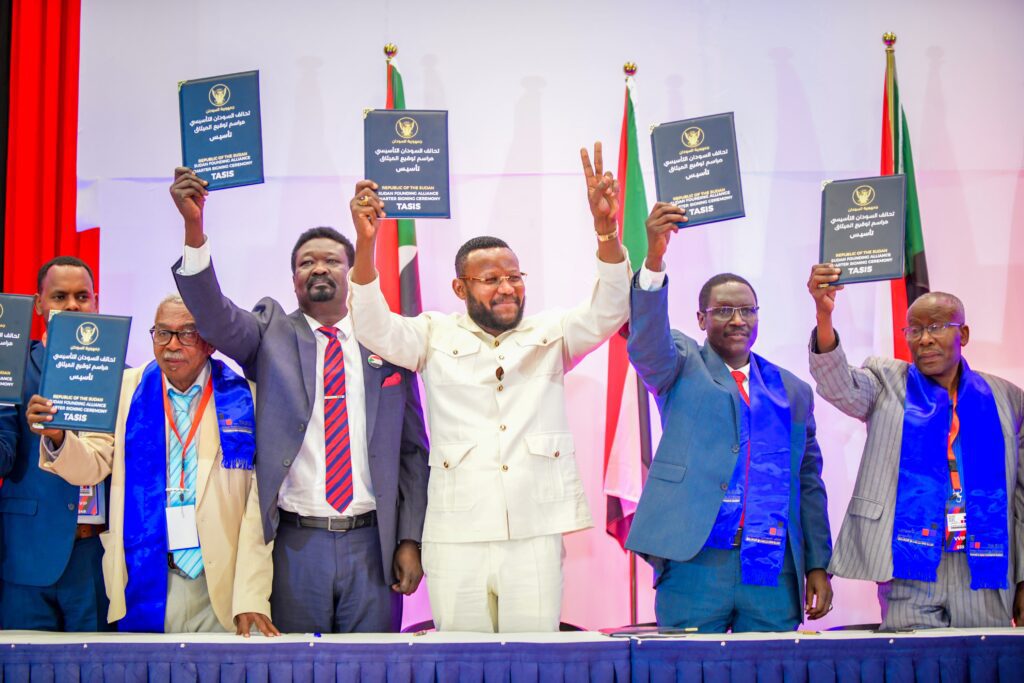Kenya welcomed the signing of a peace agreement by Sudanese political parties, civil society, and military groups in Nairobi, describing it as a critical step towards restoring peace, stability, and democratic governance in Sudan.
Kenya also reaffirmed its commitment to Sudanese-led and Sudanese-owned solutions.
Prime Cabinet Secretary and Cabinet Secretary for Foreign and Diaspora Affairs Musalia Mudavadi emphased that inclusive dialogue remains the only sustainable path to conflict resolution and long-term peace.
The statement also emphasised Kenya’s nonpartisan role in facilitating the talks, despite external pressure and allegations that the Summit intended to establish a parallel government.
It was noted that more than 4,000 stakeholders engaged in discussions aimed at addressing the root causes of Sudan’s crisis.
“Kenya remains committed to supporting the Sudanese people as they embark on the critical journey of reconciliation and to address the root causes of the conflict in their country,” the statement read in part.
“The peace roadmap signed in Nairobi provides a good framework for further negotiations, and it is our firm expectation that the signatories will actively engage with their fellow citizens and other parties to the conflict, ensuring that the interests of all Sudanese are fully represented as they move forward.”
Kenya also urged the African Union (AU), the United Nations (UN), and other international partners to continue supporting Sudan’s peace efforts.
“Kenya stands ready to offer both technical and diplomatic support to Sudan, as our shared history, regional proximity, and common goals for peace and stability make this collaboration indispensable,” the statement read.
The peace roadmap signed in Nairobi provides a framework for further negotiations, with Kenya urging all Sudanese parties to remain committed to the process to ensure a peaceful and prosperous future for the people of Sudan.
Sudan’s paramilitary Rapid Support Forces and its allies have agreed to form a parallel government, they said Sunday, despite warnings such a move could further fragment the war-ravaged country.
“The charter has been signed,” Najm al-Din Drisa, spokesman of the United Civil Forces, one of the signatories said.
The parties to the agreement, inked behind closed doors in Nairobi, said the charter establishes a “government of peace and unity” in rebel-controlled areas of the northeast African country.
The move comes nearly two years into a devastating war with the regular army that has uprooted more than 12 million people and caused what the United Nations calls the world’s largest hunger and displacement crises.
Among those who agreed to it was a faction of the Sudan People’s Liberation Movement-North (SPLM-N), led by Abdelaziz al-Hilu, which controls parts of the South Kordofan and Blue Nile states in the country’s south.
Abdel Rahim Daglo, deputy and brother of RSF commander Mohamed Hamdan Daglo — who was notably absent — also signed.
The charter calls for “a secular, democratic, decentralised state based on freedom, equality, and justice, without bias toward any cultural, ethnic, religious, or regional identity”.
It also outlines plans for a “new, unified, professional, national army” with a new military doctrine that “reflects the diversity and plurality characterising the Sudanese state”.
The proposed government aims to end the war, ensure unhindered humanitarian aid and integrate armed groups into a single, national force.
The war, originally triggered by disputes over integrating the RSF into the military, has killed tens of thousands, with both sides accused of atrocities.
Sudan’s RSF, Allies Sign Rival Government Charter In Nairobi

